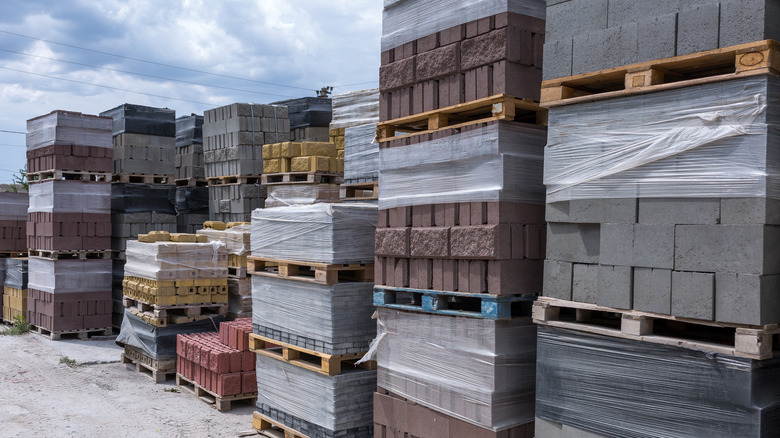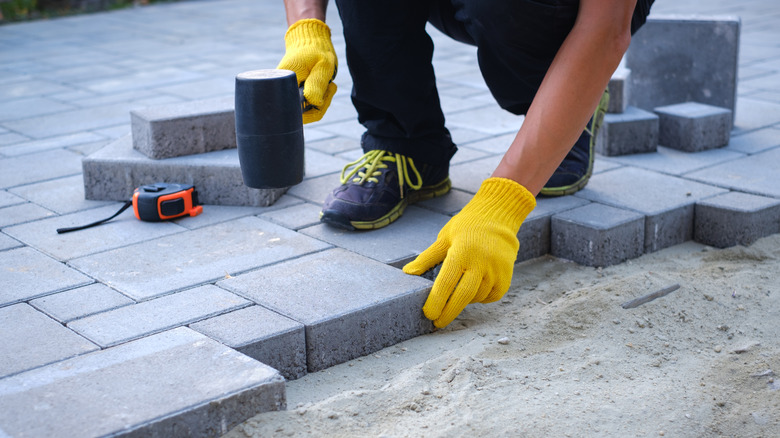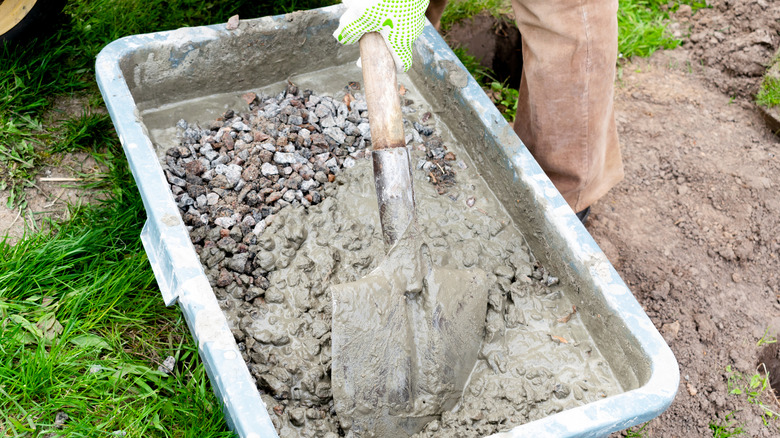The Right Way To Dispose Of Cement
According to a 2018 Environmental Protection Agency (EPA) report, concrete makes up as much as 85 % of all construction and demolition waste, which in itself contributes to a 1/4 of the total waste in the United States, explains Big Rentz. Waste like that, while inevitable, is extremely detrimental to the environment, as concrete is not biodegradable once hardened and set, according to Conserve Energy Future.
This doesn't mean you should halt your next home renovation or construction project, but rather that you should be mindful of the harmful impacts a project may have. One way to do this is by knowing how to properly dispose of leftover materials, including concrete. While you could simply throw it away in a dumpster, it is best to find alternate methods to dispose of used concrete that have less impact on the environment. Similarly, it's vital you know how to properly dispose of wet cement, as issues that come up with improper handling can be very difficult to fix.
Recycle or donate your leftover concrete
Rather than throwing out your old or leftover concrete blocks or taking them to a landfill, Big Rentz suggests that concrete still has a lifespan, as do old blocks in good condition. Why not consider calling a local landscaping company and see if they're willing to take in your leftover concrete? Sometimes, they may even take in old concrete that can be crushed and used for road construction.
Building supplies retailers may also be interested in taking in or buying back unused concrete blocks or bags of cement, however, they often won't provide a hauling service, meaning you'll have to transfer them yourself. This method isn't guaranteed, and will likely only work with new or unused supplies. Alternatively, you can reach out to neighborhood and community groups or nonprofit organizations, to see if they're interested in your leftover materials.
Concrete slurry disposal
If your concrete has been mixed but not laid, you have a more unique set of circumstances to work with. Concrete slurry, as it's referred to, cannot be dumped down drains or in a backyard, as it will harden and clog drains, notes For Construction Pros.
So, what are you supposed to do with all your leftover concrete slurry? Many construction companies opt to let it dry out, but this can sometimes take several months. Instead, Werkmaster suggests using a slurry solidifier and separator, which is an additive that divides hard concrete and water. Once done, you can simply dump out the water and pour it down the drain (as long as the pH level is safe). From there, you should be able to dispose of the remaining concrete at your local landfill. While the EPA says this is perfectly safe for the environment, some landfills may need you to prove what separator you used to be sure it's non-toxic.


